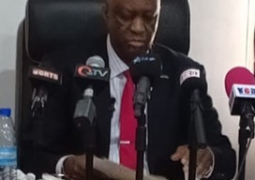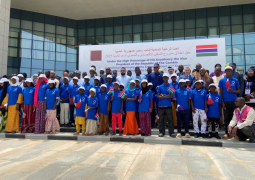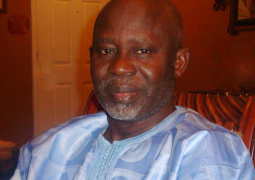
In The Gambia, it is estimated that 24,000 people are living with HIV (2020), and only 13, 692 (51%) know their HIV status.
Currently, people tend to forget about the virus due to the increase in Covid-19 cases and its new variants.
According to recent studies, HIV prevalence in the country is 1.9% DHS in 2013 and this was complemented by the recent preliminary result of the National Sentinel Study (NSS) in 2019 at a prevalence of 1.5%.
The prevalence in other cohorts that is a bit worrying is the female sex latest study that indicates the prevalence of HIV among Female Sex workers (SFW) was 11% (39/354) and 35.5% (52/151) among men who have sex with Men (MSM).
Mr. Alpha Khan, the deputy director of National AIDS Secretariat (NAS), said of those who know their status, 8294 (61%) is currently receiving treatment, adding they have to improve access to testing and treatment.
Many PLHIV in the country find it difficult to live happily and free from stress and receive the extreme support they need from family members or friends. Mr. Khan said “stigma and discrimination” also continue to be a compounding factor.
The government of The Gambia initially addressed the emerging HIV epidemic in the country through a health sector response with the creation of the National AIDS Control Programme (NACP). In 2000, the government committed itself to a comprehensive multi-sectoral response with the protection of the rights of People Living with HIV (PLHIV).
Mr. Khan said the commitment led to the creation of the multi-sectoral National AIDS Council (NAC) chaired by the President, adding that in 2001, the NAS was also established under the Office of the President to coordinate the multi-sectoral response.
Khan added that since then, “significant achievements have been realised in the fight against HIV and Aids in The Gambia.”
“Stigma remains the biggest challenge for the HIV programme. People need to know their status through testing but because of the stigma and discrimination within the community they are afraid of HIV test.”
There is a relatively robust legislative and institutional framework for addressing the scourge, the country has a strategic plan around which partnerships between government, donors, and key stakeholders have been forged, and there is a track record of programme implementation.
The fact remains that HIV can also expose oneself by weakening the immune system and giving advantage to infections like TB, pneumonia, and diarrhoea that can kill.
NAS approach towards the PLHIVs is the public health approach; Khan said, adding the programme provides treatment, care, and support services; under the purview of NAS are mostly coordination and health facility-based interventions. He said these include Post Exposure Prophylaxis (PEP), HIV Counseling and Testing (HCT), Prevention of Mother to Child Transmission (PMTCT), HIV Clinical Care, and Anti-Retroviral Therapy (ART), in addition to the ongoing programme management.
It is very hard to see or hear a sensitisation programme with regard to HIV. Khan, however, pointed out that the goal post has shifted from sensitisation to Treatment for prevention. “The country depends on one donor for the HIV programme that is the Global Fund (GF).”
GF’s focus is on treatment, care, and support. “Initially, when the disease broke, Government took a loan from World Bank to sensitise the people as the case in all new discoveries like Ebola, Corona, etc.”
DDG Khan highlighted that since the inception of COVID 19 in March 2020, people offering HIV services are constrained by the COVID workload. He added that Kanifing General Hospital was once named the COVID treatment center, thus most of the PLHIV receiving treatment there were reluctant to collect their monthly treatment supplies leading to default.
“To counter that, the programme introduces the multi-month dispensing such that those on treatment will have their supplies for two to three months,” Khan said.
He continued that the HIV treatment is very effective, saying once a person is tested positive, he/she will be counseled and put on treatment at no cost.
Some of the stakeholders were reached for contribution but to no avail.





